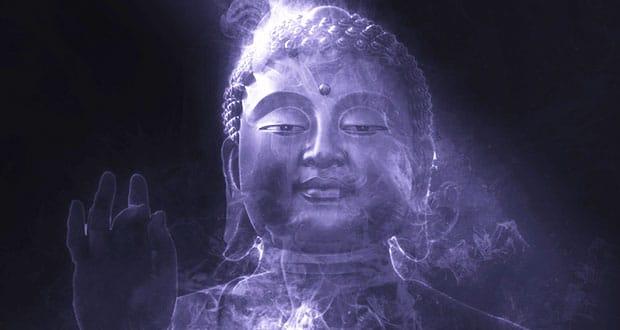If you recollected what you most enjoyed this year, you would probably recall the trips you went on, movies you saw, songs you listened to, the food you ate, friends you made, exams you passed, and so on. This trip down the memory lane would likely bring a smile togot your face.
Now, the question is this: Did you get all you wanted of those activities? All the tasty food: did you get all you could want? All the music: did you get enough? The answer is ‘No. Never enough’. Surely this is my answer as well as yours. When you saw pleasant forms, did you not follow them with your gaze, wanting ever more? There is no ending to the desire for pleasure. In the Raṭṭhapāla Sutta, it is mentioned that the Buddha said: “Ūṇo loko atitto taṇhādāso,” which means, “The world is incomplete, insatiate, the slave of craving.” We are never fully satisfied with our pleasures. We always want more. Of pleasure, there is never enough.
Desire is our master, and we do its bidding. When we eat something tasty, desire orders us to eat more, which we do. When we see something beautiful, desire tells us to take it. We may steal or lie or kill to make it ours. We do not see it as fulfilling the orders of desire; we think “I like,” “I want,” “I am doing.”
The Lord Buddha expounded this nature of our existence. By being slaves of desire, we continue in saṃsāra. We suffer endlessly, enslaved by desire. Therefore, you need to decide whether you want to be a slave and suffer or escape from suffering by following the noble Dhamma.
Understanding this profound Dhamma is not easy. We need commitment, determination, perseverance, unremitting effort and above all wisdom. To realize this noble Dhamma, we must make a concerted effort. Even if we die trying, our efforts will not go to waste. We shall then be reborn in the heavenly realms and have yet another chance to practice and realize the Dhamma.
One will be more inclined to practice the Dhamma and less likely to pursue the fleeting pleasures of the senses if one reflects on the dangers of continuing in saṃsāra. There are many discourses on how dangerous the samsaric journey is, how long we have suffered in this samsara, how rare it is to be born as a human, and how extremely rare the noble Dhamma is. We know these facts intellectually, but we must also practice according to our Dhamma knowledge. In the upcoming year, 2019, we should resolve to strengthen our practice of the Dhamma.
For this, we should be far-sighted, mindful that we are liable to die at any moment, any hour, any day—mindful that the defilements of the mind, the scorching flames of desire, hatred, and delusion, which keep us shackled to existence and propel us onward to rebirth in the four bad destinations, remain uneradicated. Rather than insatiably stroking the fires of the defilements, we should seek to assuage our desires and gain lasting happiness by practicing the Dhamma.
Accordingly, the Buddha taught in the Ṭhāna Sutta that there are four types of deeds:
“(1) There is a deed that is disagreeable to do and which will also prove harmful when done. (2) There is a deed that is disagreeable to do and which will prove beneficial when done. (3) There is a deed that is agreeable to do and which will prove harmful when done. (4) There is a deed that is agreeable to do and which will also prove beneficial when done.
(1) “Monks, take first the case of the deed that is disagreeable to do and which will also prove harmful when done. One considers that this deed should not be done on both grounds: because it is disagreeable to do and because it will prove harmful. One considers that this deed should not be done on both grounds.
(2) “Next, take the case of the deed that is disagreeable to do and which will prove beneficial when done. It is in this case that one can understand who is a fool and who is a wise person in regard to manly power of wisdom, manly energy, and manly exertion. The fool does not reflect thus: ‘Although this deed is disagreeable to do, still it will prove beneficial.’ So he does not do that deed, and his refraining from it proves harmful. But the wise person does reflect thus: ‘Although this deed is disagreeable to do, still it will prove beneficial.’ So he does that deed, and it proves beneficial.
(3) “Next, take the case of the deed that is agreeable to do and which will prove harmful when done. It is in this case, too, that one can understand who is a fool and who is a wise person in regard to manly power of wisdom, manly energy, and manly exertion. The fool does not reflect thus: ‘Although this deed is agreeable to do, still it will prove harmful.’ So he does that deed, and it proves harmful. But the wise person does reflect thus: ‘Although this deed is agreeable to do, still it will prove harmful.’ So he does not do that deed, and his refraining from it proves beneficial.
(4) “Next, take the case of the deed that is agreeable to do and which will also prove beneficial when done. This deed is considered one that should be done on both grounds: because it is agreeable to do and because it proves beneficial. This deed is considered one that should be done on both grounds.
AN 4.115 – Ṭhāna Sutta
As we prepare to enter the New Year, we should all resolve to consider the benefit of our actions in the long run, in relation to the perspective of impending death and journeying on in saṃsāra, and weigh with wise consideration the results of our actions against any temporary pleasure we might derive therefrom. In this way, we can gain wisdom while entering upon wholesome actions in this Gautama Buddha’s Dispensation.
By Prajapati Jayawardena














Recent Comments